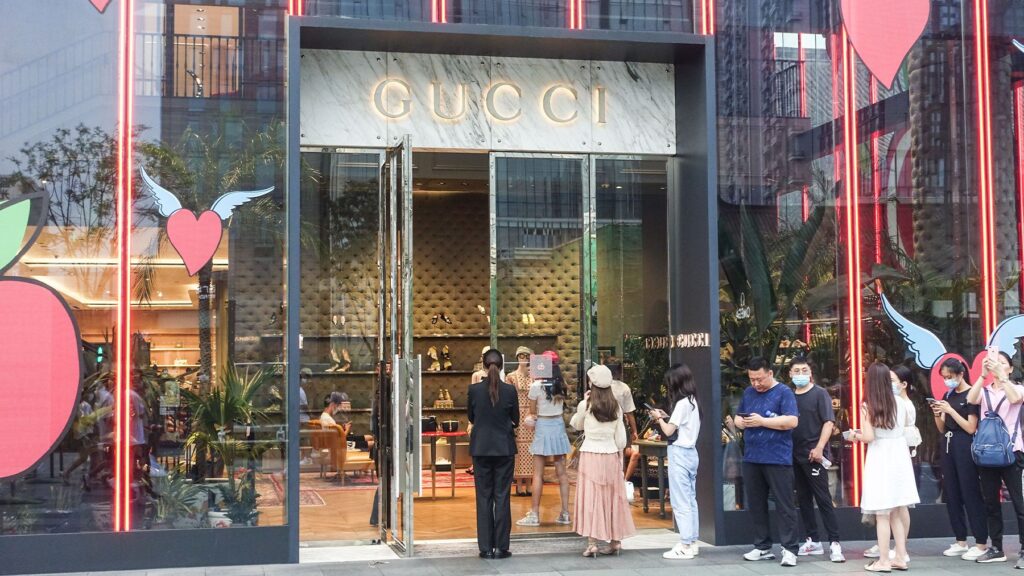Shared from www.businessoffashion.com
Italian fashion giant Gucci’s revenues climbed back above 2019′s pre-pandemic levels, Paris-based owner Kering said as it reported sales and profit Thursday. It’s a key milestone in the group’s turnaround after years of explosive growth at the flagship brand (helmed by designer Alessandro Michele and CEO Marco Bizzarri) came crashing down during the pandemic.
“Many in the market had expectations on Aria [Michele’s recent collection featuring a collaboration with stablemate Balenciaga] and the ‘House of Gucci’ lifting organic growth in the 2H21: mission accomplished, with the 4Q21 in the bag, Gucci is 10 percent bigger than in 2019,” Bernstein analyst Luca Solca wrote in a note. Kering shares climbed 6 percent in early Paris trading.
Gucci’s sales accelerated in the fourth quarter to grow 18 percent versus 2019′s pre-pandemic levels, helping the brand — which is luxury’s third-biggest name — to close the year with €9.73 billion ($11.1 billion) in revenue. That’s still well behind the growth reported by rival LVMH’s fashion and leather division, which rose 51 percent over 2019 during the fourth quarter, powered by Louis Vuitton and Dior.
Kering vaunted Gucci’s transition to a directly-operated business—cutting out multi-brand boutiques and limiting e-tailer exposure—as a key financial headwind, which may have exacerbated that gap. Gucci’s wholesale revenues are down 39 percent since 2019.
Overall, Kering’s 2021 sales grew 35 percent year-on-year to €17.65 billion, up 13 percent over 2019. Fourth-quarter sales growth beat estimates by 12 percent.
2021 saw a rebalancing in Kering’s portfolio between flagship brand Gucci and the group’s smaller units, which rebounded more quickly from the pandemic. The group’s second-biggest brand, Yves Saint Laurent, reported rapid growth in both sales and profit — with retail revenues rising by as much as 61 percent over 2019 levels during the fourth quarter. Operating margins climbed to 28.3 percent for the year as the Paris-based brand, whose heritage is squarely focused on ready-to-wear, continued to build a powerhouse business in the more-profitable leather goods category.
Kering chairman François-Henri Pinault said Yves Saint Laurent’s performance was both “steady and outstanding.”
Sales at the group’s ‘Other Houses’ division, which includes Balenciaga and Alexander McQueen, also surged. Bottega Veneta, the group’s only division to grow during the pandemic last year, continued to climb.
Going forward, Kering says it plans to focus on further developing its range in menswear, which has been a growth driver for luxury brands, as well as tweaking the balance between timeless, iconic products and the creative output of its designers. The group plans to cut out online wholesale for all its brands in favour of developing its brand’s own e-commerce sites, as well as cutting deals to operate “e-concessions” on multi-brand sites (The term refers to deals that allow a label’s products to appear on an e-tailer’s website while still retaining control over stocks, pricing, and product presentation).
Pinault said the company would seek opportunities for M&A “very actively” in the year to come.
Images and Article from www.businessoffashion.com

